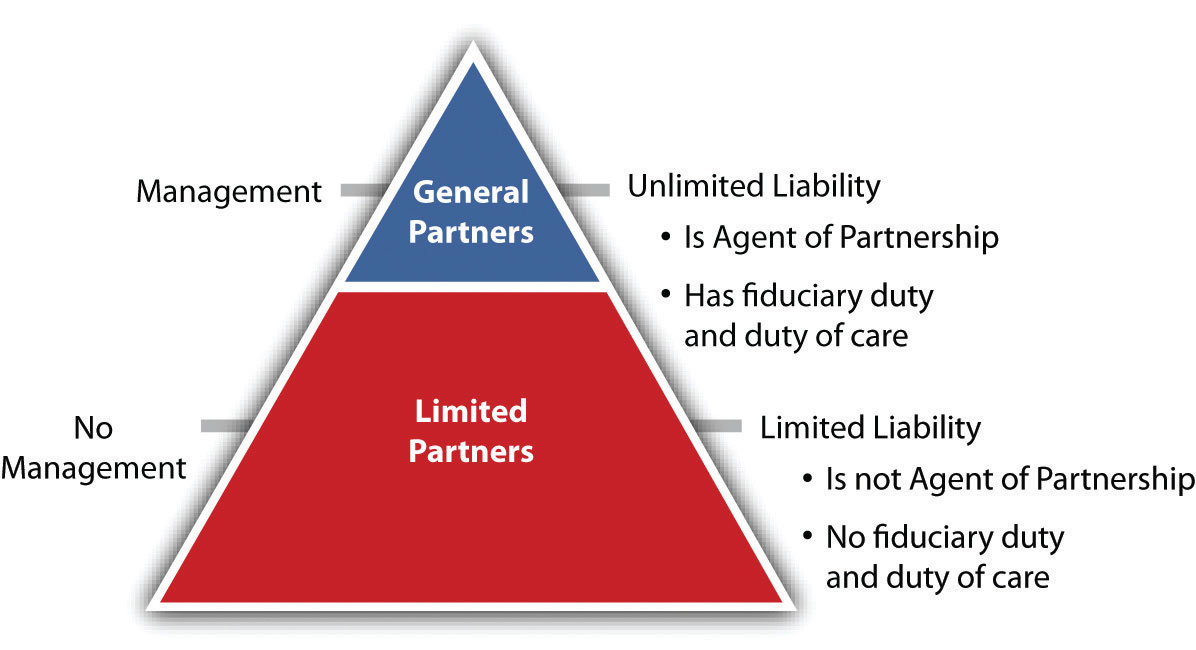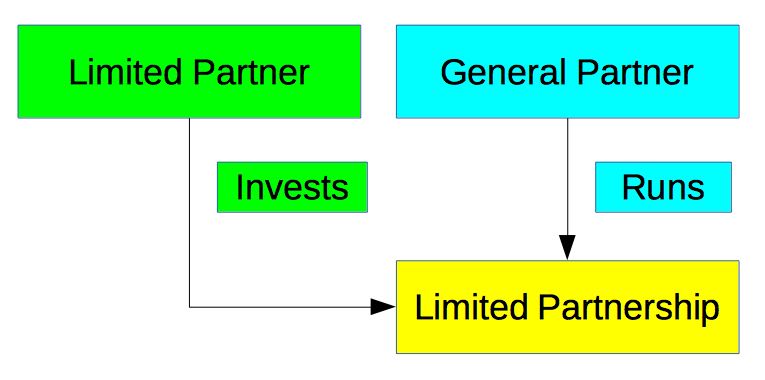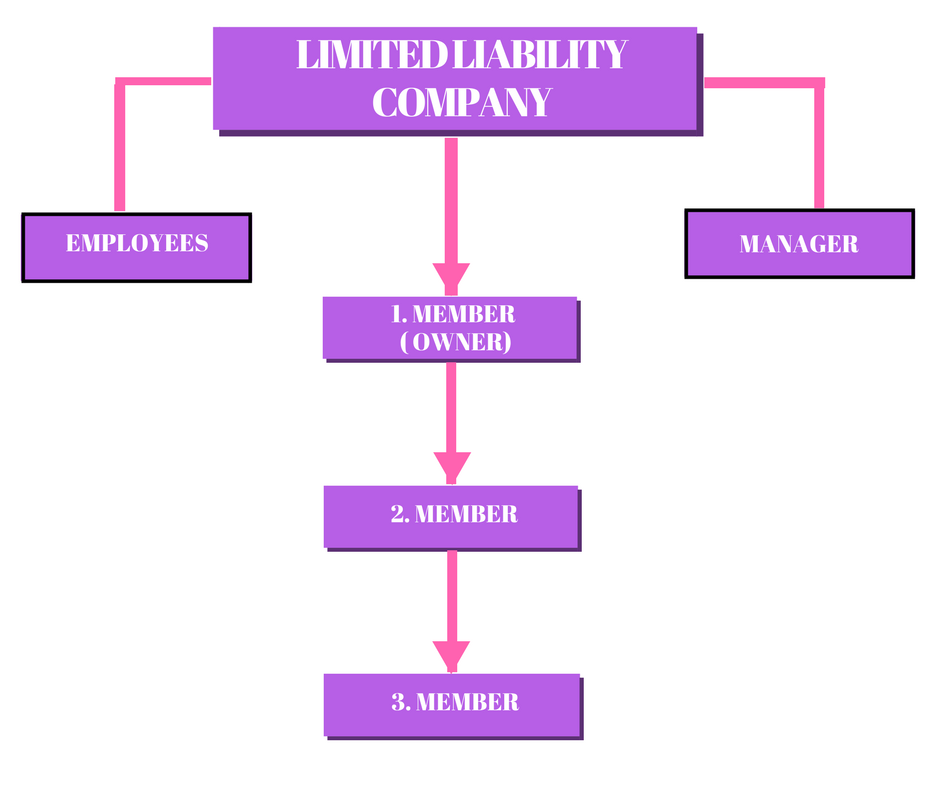General Partner vs Limited Partner: What Are The Differences?
Anytime you wish to participate in a partnership with a person or company, it is necessary you should know correctly what your roles, duties, liabilities, and risks will be. There are many types of partnerships, among which the two most common types are general partnerships and limited partnerships. They have some similarities, which makes business owners confused and want to define.
Knowing the importance of defining the two types, we have this General Partner vs. Limited Partner: What Are The Differences? post which will cover all you need to know when coming to them, thanks to some key differences.
Let’s get started!
What is a general partnership?
A general partnership (or GP in short) is a partnership which is set between two or more people sharing the profits and liabilities of a business. Being the most common type of partnership, this one may be as informal as an agreement made verbally or a formalized contractual agreement between partners. It is not compulsory that two parties have to set specific requirements for business structure or governance.
To be more specific, partners will contribute to the day-to-day management of the company when coming to a general partnership. Each will have a chance to have the authority to make the business’s decisions or legally bind the company in contracts.

If not stated, the responsibilities, contributions, and obligations of the partners are often equal. In case there are any distinctions, a partnership agreement should be made to describe the certain obligations and authorities of each partner.
Normally, to make any distinction, a partnership agreement should be created, which describes each partner’s obligations and authorities.
When it comes to the limit of liability for each of the partners, a general partnership will be structured without any limit. That means this backs the solvency and liability of the partnership with the partners’ personal assets. If the partnership asks for a large deal of financial debt, this liability will pass through to the general partners.
So, it is easy to define what a general partner is. They are:
- A person or an organization that devotes to the daily operations of a company
- A member of the managing team
- Those that act on behalf of the whole company
- Those that have important roles and duties in the partnership
- Those that have unlimited liability in terms of the financial dealings of a partnership
A general partner is the owner of a partnership. Often, a general partner either plays an active role in the company’s daily operations or is a managing partner. A general partner for a business can act on the company’s behalf. While a general partner has important responsibilities and duties in the partnership, they also have unlimited liability regarding the financial dealings of a partnership.
What is a limited partnership?

A limited partnership includes general partners and limited partners. Business law requires that a limited partnership is a business relation in which one or more partners do not have the authority and involvement in managing the company operation’s day-to-day business. The others are general partners who have unlimited liability for all partnership debts and have full management control of the entity. On the other hand, limited partners who are also known as the silent partners have the following requirements:
- They are limited to only the amount of money or property that they spend on.
- They often focus and care about a return on their investment.
- They contribute the funds as the extent of their liability. That’s why they are also known as an investor of the business.
- They do not have the right to make any business decision of the organization.
- The withdrawing funds will not be solved if the general partner disagrees. This is also applied to the amount they have already contributed.
General partner vs limited partners: What are the differences?
One similarity between a partnership and Limited liability corporation is that both of them provide for pass-through taxation. Also, both of them are not required to pay taxes. That means the owners can report their business income and losses on their individual returns.

Due to those similarities, general partners and limited partners easily make users confused.
The process of creating a partnership is more straightforward. One of the most significant differences is that a limited liability company will require the filing of state-required paperwork, while a partnership does not. What’s more, a partnership does not ask for any needed documentation, outside of a written agreement between the parties. Also, the general partner is personally liable for all business debts while limited partners of a limited liability company are not held liable personally for business defaults or judgments.
Liability
The general partners have unlimited liabilities, and their assets can also be used to recover the number of debts that need to be paid by the entity in case of insolvency. In other words, the assets of general partners can be used to pay off the debt if the company goes bankrupt.

On the other hand, the limited partners have limited liability when compared to general partners. It is because they do not have the right and power to make decisions like general partners. A lawsuit can also be filed against general partners for the debts incurred by the entity.
Ownership
The ownership of the limited partners will be predefined in the partnership agreement. When it comes to the general partner, if not mentioned or stated otherwise in the agreement, the ownership of the general partner can be treated as the equal owner of the entity.
Control
Limited partners do not have full control over operations and managing processes. Easily put, the limited partners have minimal power in comparison with general partners. The general partners have full control over the business operations, management, and other rights to make decisions for entities.
Profits/Loss
General partners share all the profits and losses equally if they are not stated or mentioned in the agreement. On the other hand, the limited partners share the profits and losses as per the partner’s amount of investment. Or as per the condition mentioned in the legal agreements. Remember that the management fee can also be paid to the general partners, ranging from about 1% to 2% of the capital committed.
Complexity
When it comes to general partners, its structure is very simple, while the limited partners’ structure’s complexity is much more than the other one.

Documentation
In terms of the limited partnership, additional paperwork will require. Whereas, less paperwork is required in the general partnership.
Participation

In the limited partnership, less participation is available, which means limited partners cannot make a decision related to daily business operations and take part in the contract for the business. However, general partners have the huge power to have major participation, legal contract, or any type of deals on behalf of the whole company. Also, general partners can enter business operations and management activities.
How to select the right partnership type for your business?
Now you have known exactly what general partnership and limited partnership are and the main differences between them. It’s time to analyze their advantages and disadvantages. The advantages and disadvantages of each partnership type will tell you what you can do and can’t do when joining, so it will be easier to determine which type of partnership is suitable for your business.

Advantages of becoming a limited partner
When being a partner of this partnership, you will get some advantages below:
- You can contribute financially to the business and get a percentage of the partnership’s profits as an exchange.
- Limited partners will not be responsible for the partnership’s debts or obligations, which adds to the amount of capital invested in the business.
- As a limited partner, you don’t need to participate in the business’s day-to-day operational activities or management meetings.
- Though limited partners have fewer responsibilities in the business, they work more than 500 hours in a given year. Therefore, it is possible they are mistaken with a general partner. Working much is not an advantage but having more of a say in the company’s development is. If you do expect so, being a limited partner is beneficial.
Disadvantages of becoming a limited partner
- Although we have mentioned the fact of not giving additional time on entering in the daily operations of the business as a plus point, it is also a drawback. Since you know little about the management activities of the business, you have less power in making business decisions related to the company’s development.
- As a limited partner, you take a role as an investor giving money to the company rather than an important part having a say in the business decisions.
- A limited partner has limited liability. So, when the limited partners can quickly be deemed a general partner and get more power, they can also be deemed and thereby responsible for this general partner’s debts and obligations.
- There are possibilities that a limited partner loses his or her financial investment in the partnership.
Advantages of becoming a general partner
- When it comes to a general partner, there are also both benefits and drawbacks in the case. The main benefits of being a general partner are:
- A general partner will have complete control over the business decisions and full authority in the company’s operational activities.
- Your money and effort invested in the business are to run and grow it. In other words, your contribution leads directly to a valuable enterprise.
Disadvantages of becoming a general partner

The only drawback of becoming a general partner is that you have to be in charge of your load of work and be responsible for the company’s debts and obligations. You can easily lose your home or personal assets if the business goes bankrupt. So, you are under great pressure to make sure the business grows well and generates sales.
Summary
It is not compulsory for partners in a partnership to create a written agreement. However, we highly recommend you have one to prevent yourself from running into the standard rules in the partnership laws of the country you are in. The state’s laws will govern your partnerships, perhaps to the direction you and your partners do not like. Also, having a written agreement will decide how you all take part in the company.
As you can see, both types of partnerships have their benefits and advantages. When coming to a partnership as well as a legally binding contract, general partners need to know that their personal assets can be used to pay debts if insolvency occurs. The general partner has more control over the company’s operations in comparison with the limited partners. However, they also have unlimited liability and duties which is not applied to the limited partners.
You might have some questions related to the topics so don’t be hesitate to leave us a comment in the section below. We will reply to you as soon as possible. If you find this post helpful, share it with your friends, and visit us for more.
Good luck with your business!
New Posts

How To Set Up Google Analytics 4 For Your BigCommerce Store






